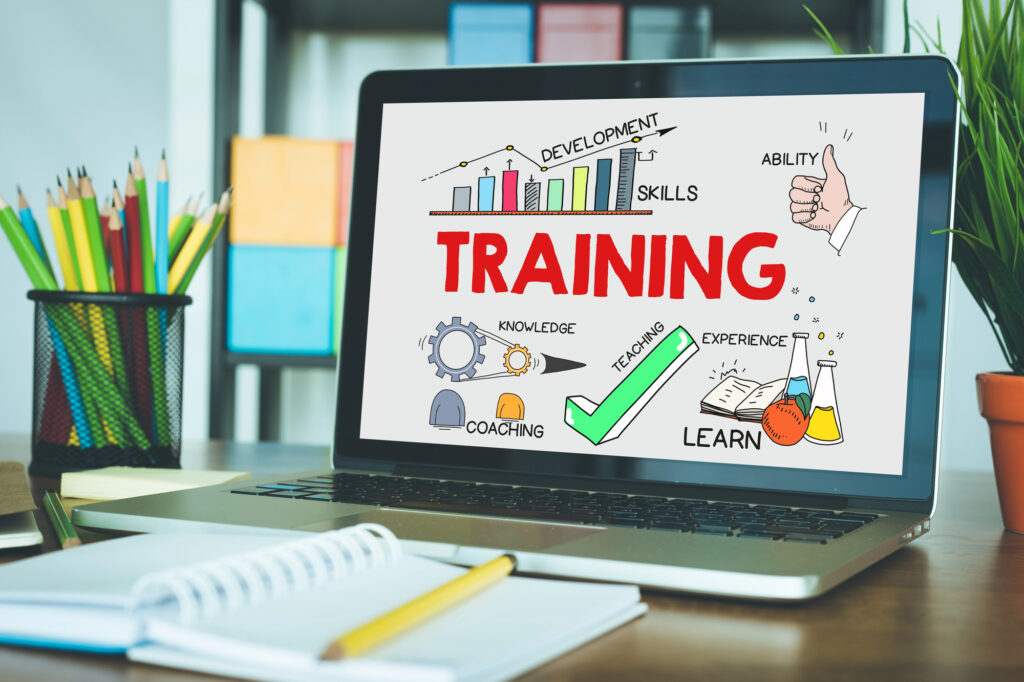 Sales training is necessary for cultivating the skills it takes to negotiate, communicate, and engage with customers. But it tends to be a dull, cyclical process. The implementation of games into the training program provides the basis for a dynamic learning atmosphere that keeps the participants inspired and engaged. It can also result in 11% to 50% increase in sales performance. So, here are eight games that can add a little spice and an effective strategy to your sales skills training.
Sales training is necessary for cultivating the skills it takes to negotiate, communicate, and engage with customers. But it tends to be a dull, cyclical process. The implementation of games into the training program provides the basis for a dynamic learning atmosphere that keeps the participants inspired and engaged. It can also result in 11% to 50% increase in sales performance. So, here are eight games that can add a little spice and an effective strategy to your sales skills training.
Strategy for Fun Sales Skills Training
1. Role-Playing Scenarios
Role play in sales skills training is a warm-up to an actual situation, one in which you know small talk and arguments will spring up. In this exercise, participants practice using different selling techniques by taking on roles like salesperson or customer. Practicing different scenarios, learning to communicate, developing personality types, and practicing responses to objections will go a long way in helping.
2. Objection Handling Challenge
This exercise gives participants a list of common objections that they may encounter during a sales conversation. Groups vie to produce the most innovative and effective answers. This game promotes rapid thinking and improves problem-solving abilities. It also gives people the confidence to handle difficult situations, making the sales process more successful.
3. The Elevator Pitch Contest
Having an elevator pitch lined up is essential in gaining attention fast. This is a pitch contest where contestants must give their pitch to a group of judges in a short amount of time. To be able to pass this exercise is to master succinctness and the art of persuasion. Judges give feedback to participants to improve their pitches.
4. Sales Bingo
Use Sales Bingo to reinforce key concepts and get everyone involved directly. Let’s say participants have bingo cards with sales-related activities or terms. They mark these on their cards as they hear them during the training. Bingo is won by whoever completes the pattern first. The purpose of this game is to encourage attentive listening and reinforce important ideas.
5. Negotiation Role Swap
The sales process also requires negotiation abilities to convert leads. In this game, players alternate roles as they negotiate from both the buyer and seller perspectives. Doing this exercise brings forth a more in-depth look at the negotiation process while reminding negotiators of the importance of walking in someone else’s shoes. Observing both perspectives allows you to strategize your approach to achieve a mutually beneficial outcome. You can only become a good salesperson when you think beyond your own gain.
6. Product Knowledge Jeopardy
Good salespeople know the product well and all its features, and they know very well how a certain feature complements the other. Instead of a boring lecture, make it an interactive quiz show. Respondents define the product by its key attributes, advantages, and unique selling propositions. Not only does this game promote healthy competition, but it also guarantees that the team members find themselves well-versed with the products they are selling.
7. Mystery Shopper Exercise
In this Mystery Shopper Exercise, participants play the part of prospective customers evaluating the inside sales process. This activity allows going through a sales process as a customer. The feedback from the mystery shopper identifies areas for improvement and helps participants tailor their approach to guarantee customer satisfaction.
8. The Closing Game
Getting into the closing part of a sale can be tough. This game involves pairing off and role-playing the closing of a sale. One person on the team attempts to close the sale, and the others give advice. This type of exercise builds confidence and equips participants to go for the kill and close the deal.
Conclusion
Sales skills training can be boring, so adding games into the mix makes it fun and interesting. These are engaging and help participants learn and remember key concepts. Active participation is also encouraged through role-playing, contests, and interactive challenges in a supportive learning environment. Organizations can utilize this kind of training so that the sales teams are made aware of on-field skills in a fun yet easy manner.
For more information about training in the workplace, see this list of blogs.


